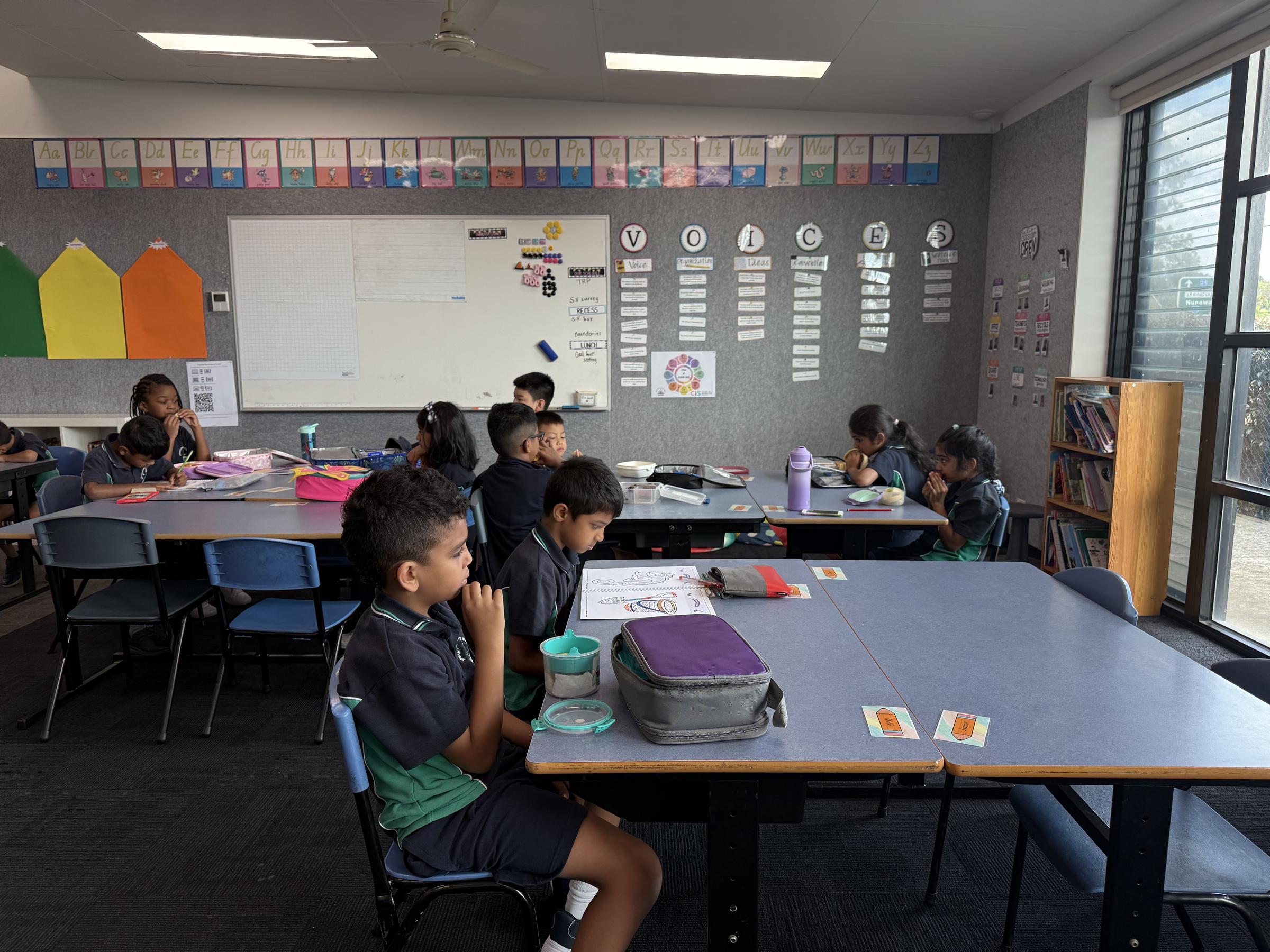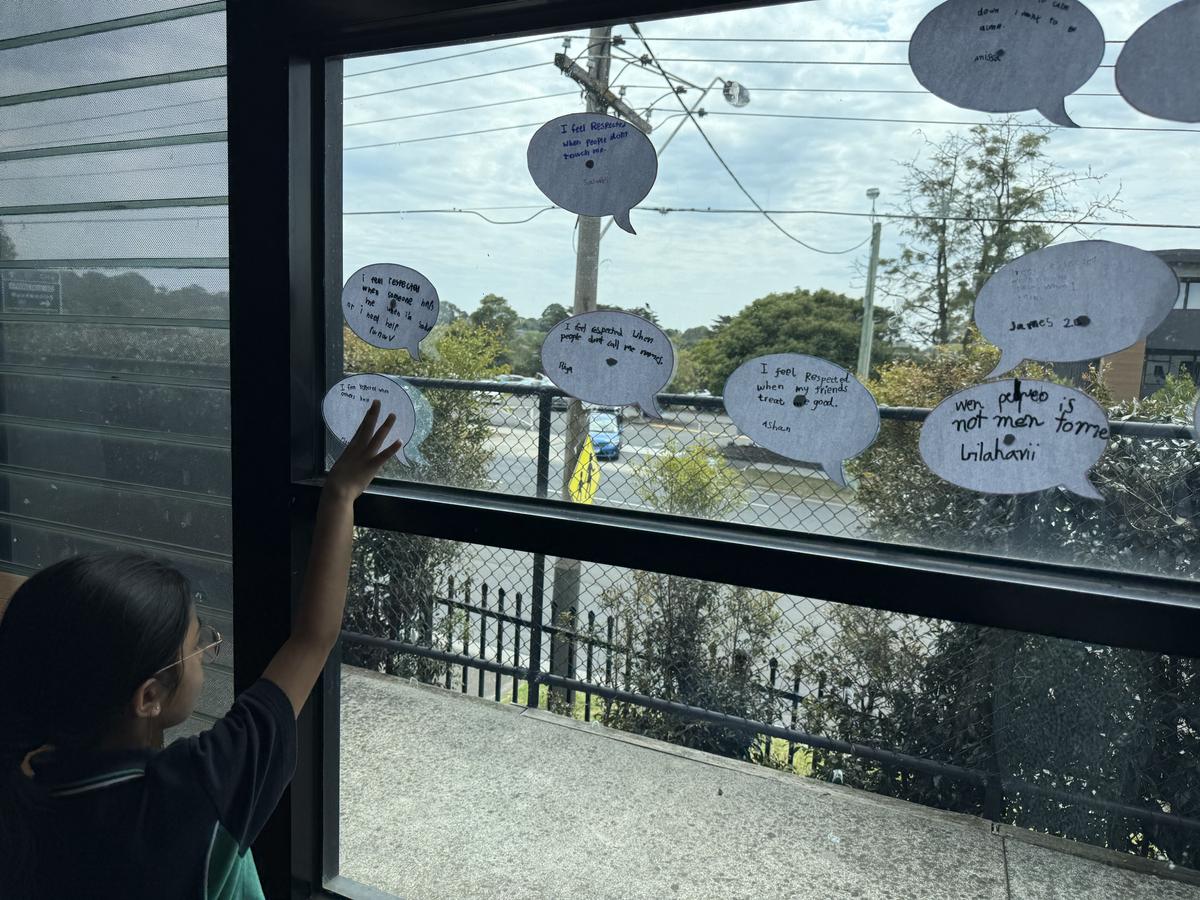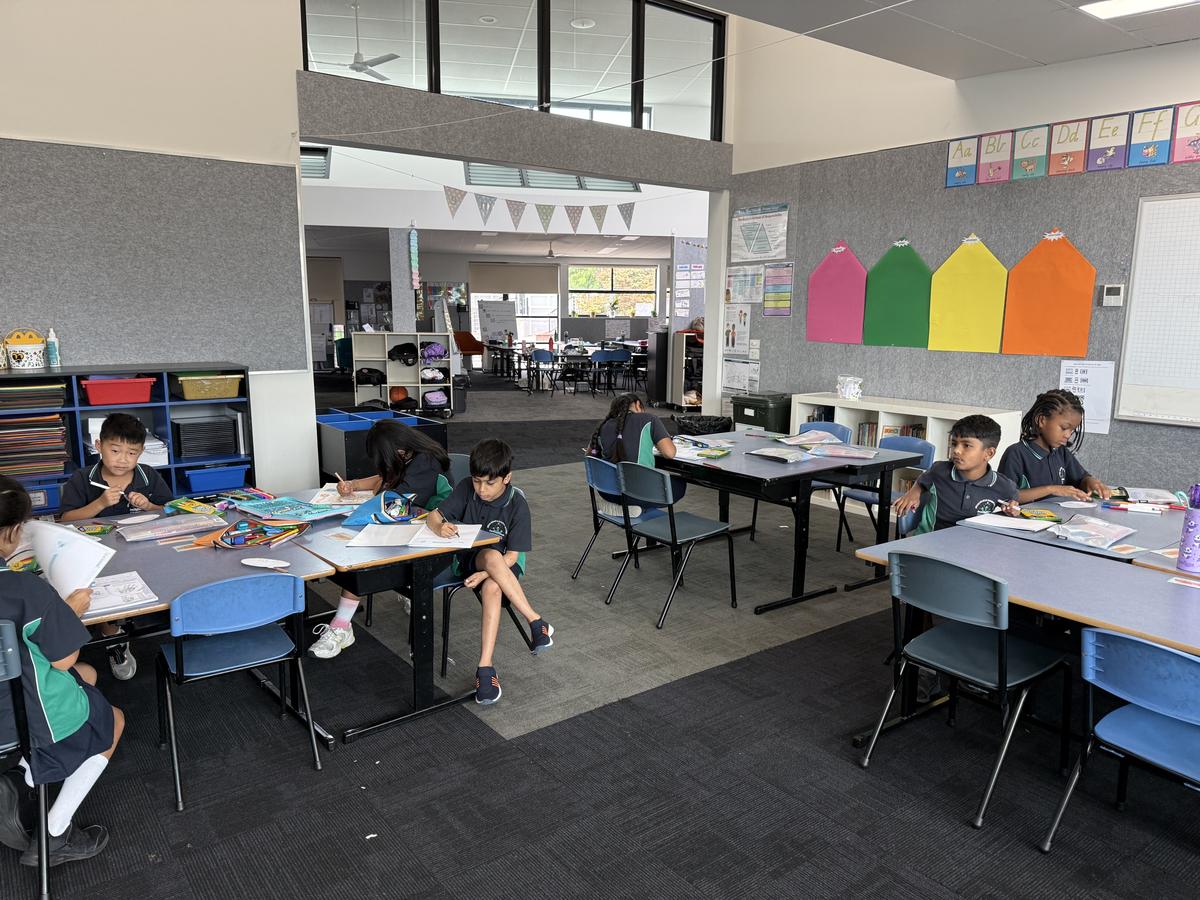Term 1

English
Initial Lit – (Reading and Viewing, Speaking and Listening)
This year, Glen Waverley Primary School has continued implementing a comprehensive, evidence informed approach to Reading, Spelling and Grammar with InitiaLit from Macquarie University. With this continued approach, we are focusing on improving fluency, comprehension and vocabulary in Reading along with grammar and spelling conventions in Writing.
In the classroom there are four main components to the lessons all Year Twos will undertake through InitialLit.
Reading lessons- Students focus on comprehension and fluency with new vocabulary introduced and discussed every lesson. They complete a series of related learning experiences connected to the shared text on narrative and informative genres.
Storybook lessons- Students participate in a repeated reading of a rich, quality text, such as the Snail and the Whale, by Julia Donaldson and Pete the Sheep by Jackie French. With these texts, students discuss new vocabulary and sort words into nouns, verbs, adjectives and adverbs. Students participate in aligned task that unpack the characters within the text and the plot to build literal and inferred understandings.
Key Vocabulary:
Reading:
- Narrative
- Information Report
- Imaginative
- Reading fluently (quickly and accurately, using correct expression)
Storybook:
- Nouns
- Adjectives
- Verbs
- Adverbs
- Literal
- Inferred
How can you support your child’s English learning at home?
- Ensure your child reads every day for 10-15 minutes from their school readers.
- Ask your child what their “Tricky Words” are for the week and test them on spelling these orally.
- Point out and discuss examples of nouns, pronouns and adjectives in books, signs and other reading materials.
Writing/Spelling/Grammar
This term, learners are investigating the writing genres, Recount and Narrative. They are developing their writing skills through connections to the whole school approach, VOICES goals. Their learning will include experiences writing through aspects such as Voice, Organization, Ideas, Conventions, Excellent Word Choice and Sentence Fluency. In Recounts, learners will write about events in the past from a First-Person perspective, using the five 5Ws. In Narratives, they will utilise literary elements such as character, setting, plot and messages to create their own stories. In the InitiaLit component, learners will be exploring grammatical conventions such as Nouns, Verbs, Adjectives and Sentence structures. Learners will also have regular writing conferences with their teacher to set personalised writing goals that are tailored to their need and to ensure they are supported throughout their journey as authors.
Grammar- Students will be introduced to several grammatical concepts over the term. These include, identifying and appropriately using noun (proper and common nouns), pronouns and adjectives. Students will be encouraged to use them in their writing and speaking tasks.
Spelling- Students will continue to build their phonemic knowledge on sounds this term. They will explore spelling rules for digraphs, long vowels and learn "Tricky words” that do not follow regular spelling rules. Student’ will be encouraged to articulate the sounds and apply them to words within each lesson.
Key Vocabulary:
Writing:
- Narrative
- Recount
- Who, What, When, Where, How
- VOICES
Grammar:
- Proper nouns
- Common nouns
- Pronouns
- Adjectives
Spelling:
- Digraph
- Long vowel
- Tricky Words
How can you support your child’s English learning at home?
- Ask how they felt about an experience and what made them feel that way.
- When they have found an irregular spelling for the past tense verbs, encourage them to make a sentence with it through speaking and writing, for example go – went, eat – ate, etc.
- Encourage your child to retell an event or a story. You may use ‘first, then, last’ to help them order the events
Mathematics
This Term, we are thrilled to introduce a new mathematics program called Ochre, which will be implemented across our school. Ochre provides a structured approach to developing foundational mathematical skills, grounded in the Science of Learning and aligned with the Victorian Curriculum. The program emphasises problem-solving and critical thinking, aiming to build confident, numerate learners who can apply mathematical concepts to understand the world around them.
Learners will consolidate their skills in a variety of concepts using hands on materials and investigation. Already, students have explored and deepened their understanding of data collection. Learners have honed their number line, skip counting and number pattern skills through concrete materials, multiple representations and game-based learning experiences.
Throughout the rest of this term, learners will be exploring place value using partitioning (the process of breaking numbers down to look at the values of each digit). Then they will be transferring their knowledge of place value into Addition and Subtraction using various strategies and making links between each operation.
To support your child’s learning at home, you could:
- Play Maths challenges with a family member, for example, generate an addition or subtraction equation. Race to solve the equation.
- Practice using the addition and subtraction strategies. Encourage your child to explain their chosen strategy.
- Skip Count Walk – When walking, ask your child to skip count by 2s, 5s, 3s, 10s saying the next number each step they take. For an extra challenge, ask your child to start from an odd number.
Key Vocabulary:
- Skip count
- Number pattern
- Number line
- Hundreds chart
- Pattern
- Digit
- Concrete materials
Inquiry
Question: How do we work with different ethical perspectives when collaborating?
Global Goal:
3. Good Health and Wellbeing
3.4 Promote Mental Health
Summary of Learning:
In Term 1, students will investigate the notion of ethical perspectives when collaborating, discovering that it's an art through deep dives into collaboration in sports, visual and media arts. Guided activities will teach conflict resolution and communication skills, preparing students for success beyond school. These skills foster a greater awareness of their ability to contribute to common goals. To solidify their understanding, students will craft a manual promoting collaboration, sharing the importance of working together with the entire school community. This project emphasises the value of teamwork and positive contributions towards shared objectives.
Key Vocabulary:
Collaboration, ethical, conflict, communication, resolution, teamwork
How can you support your child’s Inquiry learning at home?
- Playing board games
- Have your child help with household chores (tidying, dishwasher etc.)
- Playing sport/games with your child outside
Wellbeing
The Resilience Project
In Grade 2 Term 1, we explored The Resilience Project and learning about the importance of Emotional Literacy. Emotional Literacy is the ability to recognize, understand, and express our feelings, and it’s a vital part of building strong, positive relationships and developing resilience.
This term, the students have been engaging in activities to identify their emotions and practice strategies for managing them. Through the group discussions, collaborative and creative tasks, they’ve been learning how to express their feelings in words, listen to others with empathy, and build a toolbox of strategies to calm their minds during challenging times.
One of our favourite activities has been “GEM Chat,” where students focused on fostering positive connections and building emotional awareness. Students shared moments of gratitude, practiced understanding others’ feelings, and engaged in mindful reflection, creating a safe and inclusive environment.
It’s wonderful to see the Grade 2 students becoming more aware of their emotions and developing the confidence to express themselves!
Key Vocabulary:
- Empathy
- Gratitude
- Mindfulness
How can you support your child’s Wellbeing learning at home?
- Showing Gratitude and being grateful for what we have.
- Practicing Mindfulness at home like mindful breathing and colouring.
- Showing Empathy such as being an active listener.
Cyber Safety Project
In Term One, our Year 2 students will begin a new and exciting journey focused on Cyber Safety, with an emphasis on the theme of Responsibility. This program empowers young people with the skills and knowledge to independently manage their digital safety and wellbeing. The program will be taught via 16 lessons across the year, with four each term. The learning will centre around the four following values: responsibility, integrity, strength and empathy.
Key Vocabulary:
- Cyber safety
- Technology
- Digital
How can you support your child at home?
- Encourage your child to use their devices in communal living areas.
- Attend the parent sessions, more to come in Term 2.
- Discuss with your child safe cyber practices.


